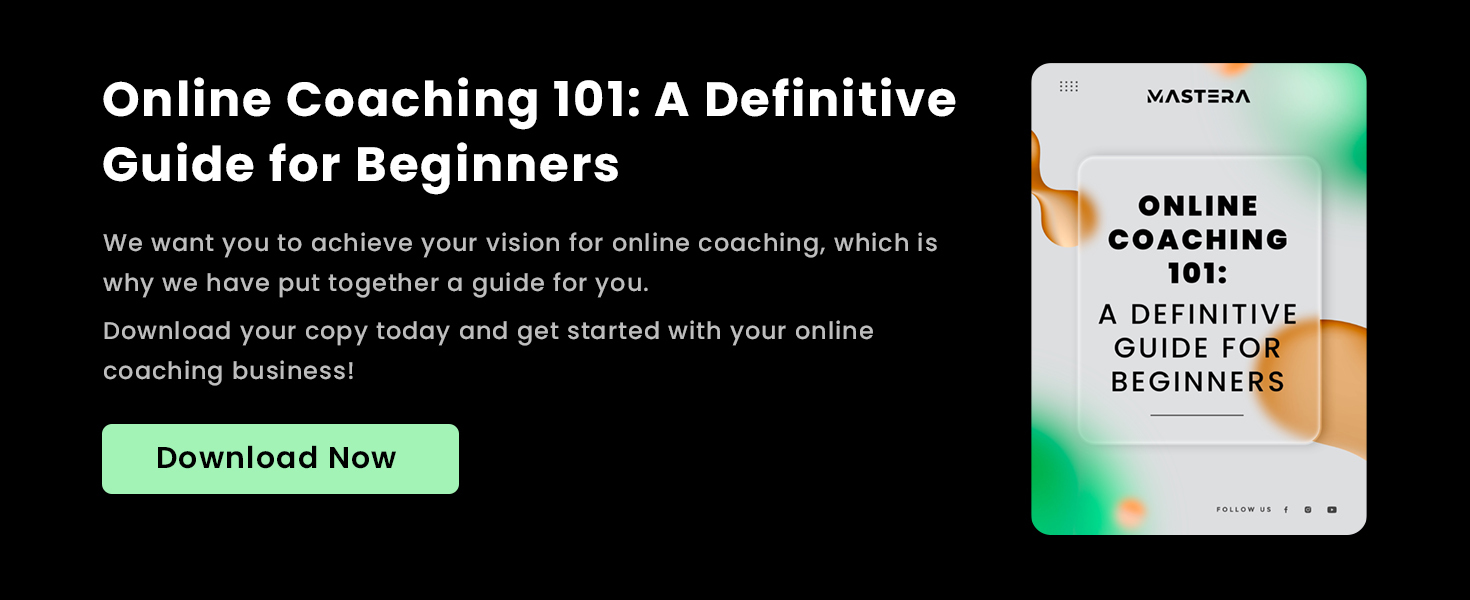The recent pandemic saw that people adopting digital tools are on the rise. We’re not just talking about embracing social media channels like Tik-Tok. It’s more than that. People are becoming comfortable doing more online, like learning online (whether it’s a how-to video on YouTube or a complete online fitness program on a platform like Mastera).
If you’re one of the many talented people out there who are looking to teach – you’re choosing the ideal industry. Grand View Research shared that in 2021 the international online teaching services market size was measured at USD 6.57 billion. It’s expected to have an annual growth rate of 14.7% from 2022 to 2030.
There’s no other way to say it – online tutoring is here and here to stay. In this article, we’ll share five foundations for successfully teaching online and some valuable tips before you launch your business.
In this article:
- What is Online Teaching?
- Pre-launch Requirements for Online Tutoring
- 5 Foundations for Starting an Online Education Business
What is Online Teaching?
Online teaching is the process of educating others on a specific topic or niche via the internet.
You can teach from any location you desire (home, a coffee shop, a rented studio, or a co-working space) and teach students located anywhere in the world.
Pre-launch Requirements for Online Tutoring
Establishing the fundamentals as a teacher, instructor, or tutor is a core part of starting your business. But before you get into any implementation tactics, there are a few things you should plan for.
Here are a few steps to take before launching your online teaching business:
- Finding Your Niche: To work as an online teacher, you should meet the requirements for the specific topic that you’ve chosen to teach. Take a look at what you have a passion for, what you’re already qualified in, and how you can teach a certain topic and empower others by doing so. All of these checklist items will help you find your niche – one of the most crucial parts of starting a business.
- Reviewing Your Credentials: With certain industries comes an assumption that you will be qualified in a particular field. This generally occurs within the educational sector. For example, if you’re teaching Math online, you may need to have a college degree or specific certifications to be able to teach online. Remember, even if your field of expertise doesn’t require a qualification or certificate, you may want to invest in it as it carries weight and makes you more credible.
- Setting Up Your Classroom: Once you know what you’ll be teaching, you need to spend some time deciding where you’ll be teaching. Will it be at home, a park, or in a co-working space? Here are a few tips to help you decide:
-
- Does your environment have sufficient space for your online classes?
- Does it have adequate light for your video recordings and live streams?
- Are you away from ambient noise?
- Do you have a clear and light background?
- Does the environment’s mood and look suit your topic?
- Do you have a stable internet connection?
5 Foundations for Starting an Online Education Business
Starting an online business and getting your name out there can be a tough nut to crack. But these five foundations will assist you in gaining a competitive advantage from day one:
#1: Understand Your Learners
Not every learner is the same.
Read that again.
Yes, learners who enroll for your online class are sometimes familiar with the topic, but a lot of the time they’re very new to your niche. It’s important to try and understand what level your learners are on from the get-go. Here are a few ways to do so:
- Have a one-on-one virtual chat with newly enrolled learners.
- Ask them about their level of knowledge, skill, and goals.
- Set up one-on-one sessions with learners if they’re open to doing so.
- At the end of a course, follow up and ask learners for their feedback.
#2: Offer More Than Courses
Offering online courses is great – it’s structured, valued, and creates good revenue. But take the time to offer your learners more. For example, if you’re teaching cooking classes, offer learners merchandise to complement your class. This could be anything from a knife set you use to a pestle and mortar. We’ve noted a few more ways you can offer more to customers through your online teaching platform:
- Sell digital products like guides or eBooks that complement your course topic.
- Sell physical merchandise like clothing and apparel with your branding.
- Offer learners discount coupons to other classes you run that they may be interested in.
- Offer exclusive on-demand content as additional products.
#3: Be Flexible
In today’s world – everyone wants flexibility. Build your business plan to allow for flexibility between yourself and your learners. Take a look at a few ways to be a flexible online teacher:
- Change your learning style according to how learners respond to you.
- Be flexible with your schedule and allow learners to book appointments before 9 am and after 5 pm.
- Offer individual and group sessions so learners can choose whichever they prefer.
#4: Get an Online Teaching Tool
Picking a suitable online education software can be an overwhelming task. Try to find a premium video experience platform that hosts your live classes and on-demand content, and does a little more for you too. You may be asking what else would could you need? Well, being able to schedule classes, book appointments, and sell digital and physical products are all just as important as your classes. Your business operations and marketing management should all happen from your online tutoring software. Check out Mastera for more information on these features and more.
#5: Act as a Pillar of Support
Once you have a list of customers and are up and running, remember to act as a support system for all your learners. Some learners may need additional tutoring time, which you should be offering them. Use email or text messaging to check on their progress, and provide a helping hand where needed. Use reporting tools within your online teaching platform to help you review their performance and create feedback loops based on this data. It’s valuable to learners and enables you to stand out from other competitor tutors.
Mastera: An Ideal Online Teaching Platform for Your New Business
Now that you’re ready to start your very own online education business let us take care of all your content management, hosting, marketing, and customer information. Leaving the running operations to us allows you to do what you do best – teach and empower others.







